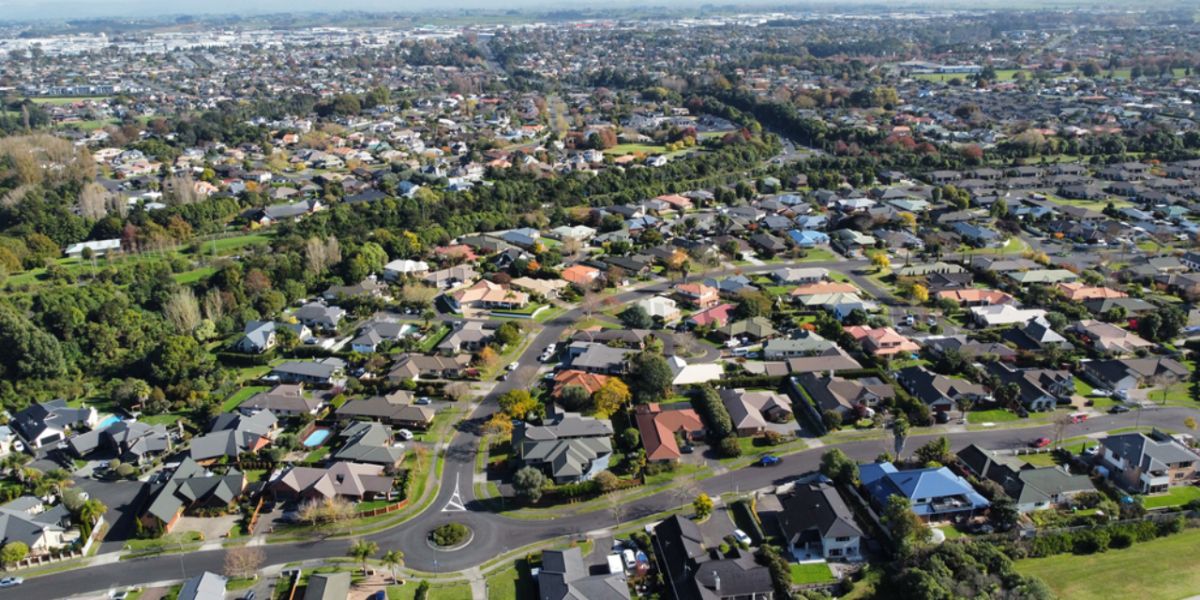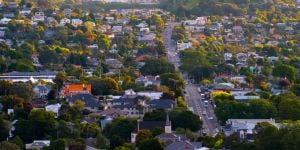
If you are looking to settle in Auckland, but can't afford the ever-inflating prices, then Hamilton - or “the tron”, as the locals call it - is a great alternative. Hamilton is New Zealand's fourth-largest city and the third fastest-growing area, with 180,000 residents as of 2022. Hamilton is located on the Waikato River, and 16km of this mighty river pass through the city. It is known for its beautiful gardens and parks, including the Hamilton Gardens and the Waikato River Walk. The city is also home to the University of Waikato and the Waikato Institute of Technology, which contribute to its vibrant student population.
Hamilton is a hub for agriculture, with a thriving dairy industry and a number of wineries in the surrounding area. It is also a popular destination for outdoor enthusiasts, with plenty of opportunities for hiking, biking, and water sports in the nearby forests and lakes. Hamilton enjoys a great location, between the hub of Auckland and the coastal city of Tauranga, as well as being close to Hobbiton and the Waitomo Glowworm caves. Although Hamilton doesn't have any beaches, it is only a 45-minute drive away from the famous surf beach of Raglan.
The large student population makes for a strong student culture in the city. The number of students also means that much of the accommodation in Hamilton is intended for student living, and there is a flourishing flatshare culture. However, if you are not a student, there are plenty of alternatives, with plenty of studio apartments, villas and houses in the city as well.
Hamilton's neighborhoods
Hamilton's CBD is an especially lively area because of the student population and the number of shops and other activities. Hamilton's main street is known for its dynamic and sophisticated appearance with its cafes and restaurants. You will also find various attractions such as parks and a theatre.
Outside the center, some of the notable neighborhoods are:
- Beerescourt - This suburb is adjacent to the city center and features access to the riverside walkway. With its hill location, it also affords beautiful views. It has its own small shopping area, with easy access to all of the retail parks of Te Rapa.
- Glenview - A small suburb to the south of the city center that was home to New Zealand's first shopping mall in 1969. It now has a small shopping plaza.
- Hamilton East - One of Hamilton's oldest suburbs, which was known as 'Irishtown' in the late 19th and early 20th centuries, offers many 1900s villas and bungalows. It is the home of Beale Cottage, Hamilton's oldest remaining house, as well as many parks, the Cathedral, the Institute de Notre Dames des Missions convent heritage site, and the biggest attraction of Hamilton: Hamilton Gardens. There is also a shopping and retail area on Grey Street.
- Hamilton Lake - Adjacent to Hamilton Central, Hamilton Lake features Lake Rotoroa, as well as notable attractions, including the Waikato Museum, St Peter's Cathedral, and the Anglican Cathedral for the Diocese of Waikato.
- Hamilton North - Formerly part of Hamilton Central, Hamilton North became its own suburb in the 1960s. It is home to Waikato Stadium for rugby union, Founders Theatre (whose fate is currently being disputed), and the Spanish-themed boutique shopping street Casabella Lane.
- Te Rapa - A semi-rural suburb to the north of the city known for its dairy factory, railway links, and large retail establishment converted from an old Air Force base. It is also home to New Zealand's last remaining horse racing course and the Waterworld pool complex.
Hamilton's livability
Hamilton is generally considered to be a very livable city, with a relatively low cost of living compared to other major cities in New Zealand. It has a diverse range of housing options, from apartments and townhouses in the city center to larger homes in the suburbs. The city also has a good selection of schools and healthcare facilities, and the University of Waikato and Waikato Institute of Technology provide further education and research opportunities. In general, the community tends to be young and innovative — almost half of all residents are under the age of 30.
Renting accommodation in Hamilton
Finding a rental property in Hamilton can be a competitive process, as the city has a relatively low vacancy rate and a high demand for rental properties - especially near the beginning of the school year when students swamp the property market. Start your search well in advance of when you need to move, as this will give you more time to find a place that meets your needs and budget.
There are a few different ways to search for rental properties in Hamilton. One option is to use online property listing websites, such as Trade Me, which allow you to browse a range of properties and contact landlords or agents directly. You can also use a property management company or a real estate agent to help you find a rental property. These companies can assist with the search process and provide valuable advice on the local rental market.
In Hamilton, there is a range of property types to rent, including apartments, studios, larger houses, and rural options. Again, using TradeMe is an excellent way to get an idea of what to expect in terms of price and appearance.
Rental costs in Hamilton
The median weekly rent in Hamilton was NZ$500 at the end of 2022. However, there will be a large number of properties on either side of this number. You can use the Tenancy Services website to determine what standard rental prices are in your area to determine if you are paying a fair price.
Student housing options in Hamilton
Hamilton offers different student housing options to suit different needs and preferences. Many students choose to live in university-provided accommodation, which includes halls of residence, apartments, and shared houses. These options are excellent in terms of convenience, community, and support services like cleaning and meals, with some located right on campus. Off-campus options are also available, such as private rentals, homestays, and hostels.
Leases in Hamilton
Hamilton, like the rest of New Zealand, follows a standard set of terms and conditions when leasing a property. These agreements will be laid out in the lease document and typically include:
- Rent: Tenants are required to pay a fixed amount of rent to the landlord on a regular basis, typically monthly.
- Tenure: The length of time the lease will be in effect, which can vary from a few months to several years.
- Bond or security deposit: A deposit paid by the tenant at the beginning of the lease to cover any damages or unpaid rent at the end of the tenancy.
- Inventory: A detailed list of all items in the property, such as furniture, fixtures, and appliances, to assess the condition of the property at the beginning and end of the tenancy.
- Maintenance and repairs: Generally, the landlord is responsible for maintaining and repairing the property throughout the tenancy.
- Termination: The process by which the lease can be terminated by either the landlord or the tenant, with proper notice.
Both the landlord and tenant must agree to the lease conditions and sign the agreement before finalizing it. It's important to address any issues with the lease, such as incorrect or unfair terms, before signing it. If necessary, Tenancy Services can be contacted for assistance.
Buying a property in Hamilton
If you're not a resident or citizen, you may encounter difficulties buying property in New Zealand. However, there are exceptions, and the government has designed a tool to help you figure out what you can buy. If you're on a resident visa in New Zealand, buying property should not pose a problem.
Buying a house in Hamilton can be a good investment, as the city has a relatively stable property market. Prices have been steadily increasing in recent years, although, like all of New Zealand, they experienced a drop in 2022. However, it is important to be well-informed about the local property market and to consider your budget and long-term goals before making a purchase. The proximity to amenities, schools, and transport links can all impact the value of a property.
If you're thinking of buying a place in Hamilton, here are the steps you'll need to take:
- Do some research. Look into the local housing market and figure out what kind of place you can afford based on your budget.
- Get a loan. Most people in Hamilton get their home loans from banks. Talk to a bank specialist or mortgage broker to figure out the terms of your loan.
- Consider getting legal advice. Buying a property can be pretty complicated, so think about hiring a lawyer to help you with the legal stuff.
- House hunting. Once you're ready to start looking for a place, you can browse online listings, check out open homes, or get in touch with a real estate agent to get some personalized help.
- Check it out. Before you make an offer, you'll want to do your due diligence to make sure the place is in good shape. Get a Land Information Memorandum (LIM) report, an engineer's structural report, and a final valuation to make sure you're making a good investment.
- Make an offer. When you find a place you love, make an offer to the seller, or participate in an auction. Once you agree on the terms of the sale, sign a legally binding Sale and
- Purchase Agreement, transfer the ownership of the property, and pay the purchase price to the seller.
The cost of buying a house in Hamilton
Sadly, the actual price of the house is just the beginning. There are other expenses that come with buying a property in New Zealand, and these include:
- Real estate agent's fees: If you choose to work with a real estate agent when buying a house, you'll need to pay their fee, which can be a percentage of the sale price or a flat fee.
- Legal fees: You'll need to pay for legal services to help you with the purchase, like reviewing the Sale and Purchase Agreement and transferring ownership of the property.
- Home inspection: It's always a good idea to have a professional home inspection done to make sure everything's in good condition and to spot any potential issues. This usually costs around NZ$500.
- Land Information Memorandum (LIM) Report: A LIM report gives you important information about the property, including building consents, plans, and any other relevant info. A LIM report typically costs around NZ$300.
- Valuation report: Before you buy a house, it's a good idea to get a professional valuation to make sure you're paying a fair price. A valuation report usually costs around NZ$300.
- Conveyancing fees: Conveyancing is the process of transferring ownership from the seller to the buyer. You'll need to pay for the services of a conveyancer to complete this process, and the cost can vary depending on the complexity of the transaction.
- Bank fees: If you're getting a mortgage to finance the purchase, you'll be responsible for paying bank fees like application fees, appraisal fees, and title search fees.
Remember that these costs can vary, so it's a good idea to get an estimate of these expenses from your real estate agent, lawyer, or mortgage broker before making an offer on a property. And make sure you've got some cash set aside in your budget to cover these costs.
We do our best to provide accurate and up to date information. However, if you have noticed any inaccuracies in this article, please let us know in the comments section below.








